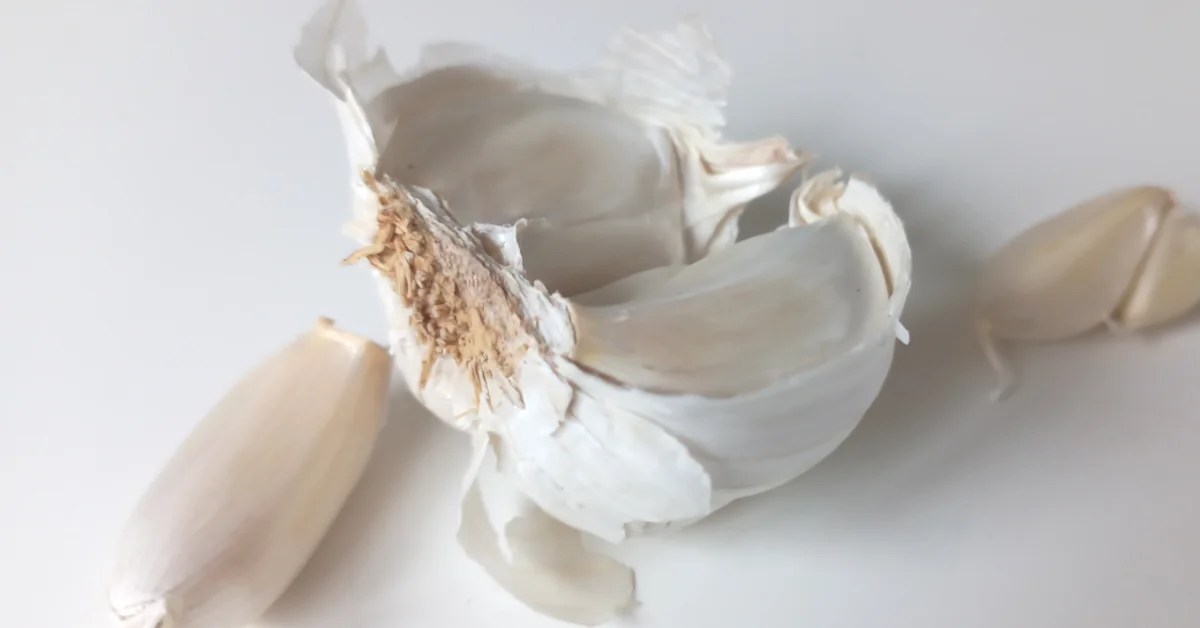Could Garlic Benefit People with Psoriasis?

Garlic is widely known for its health-promoting properties, including its anti-inflammatory activities. As psoriasis is fueled by inflammation, it's reasonable to wonder whether eating garlic could offer special benefits for people with psoriasis.
Below, we review what is known about garlic and its anti-inflammatory activities, as well as the possible implications for people with psoriasis.
Garlic, Inflammation and Psoriasis
Psoriasis is a chronic inflammatory condition in which the immune system becomes overactive, causing skin cells to grow and renew too quickly. This rapid turnover leads to the scaly, inflamed patches that characterize the disorder [1]. As inflammation is a key driver of the condition, many psoriasis treatments are aimed at reducing inflammatory activity.
Several biomarkers can be used to quantify inflammation. In people with psoriasis, levels of inflammatory markers such as interleukin-6 (IL-6), C-reactive protein (CRP), and tumor necrosis factor-alpha (TNF-α) are often elevated compared with people without the condition [2].
While the effects of garlic consumption on inflammation have not been studied specifically in people with psoriasis, several studies have examined how garlic supplementation affects inflammatory markers in other populations. Overall, there's strong evidence that garlic can reduce CRP levels, and some evidence that garlic—especially aged garlic extract—can reduce TNF-α levels. On the other hand, garlic supplementation doesn't appear to have a significant effect on IL-6 levels. [3, 4].
The anti-inflammatory effects of garlic are generally attributed to allicin, a sulfur-containing compound that forms when garlic is chopped or crushed. Some research suggests that allicin can help calm inflammation by dialing down certain cellular signals that usually "switch on" inflammatory responses. In lab and animal studies, allicin reduced the activity of inflammation-driving pathways (notably p38 and JNK) and lowered the activity of NF-κB, a key regulator of immune responses [5]. By tempering these signals, allicin may help dampen the processes that lead to inflammation.
Of course, this does not mean that eating garlic will necessarily improve psoriasis symptoms. At this point, the idea is purely theoretical: psoriasis is an inflammatory condition, garlic shows anti-inflammatory effects, and therefore it is plausible that eating garlic could offer some benefit. However, in order to determine whether these general anti-inflammatory effects can actually translate into any meaningful improvement for people with psoriasis, actual clinical trials are needed.
There is, however, some early data on the topical use of allicin. In mice with psoriasis-like skin lesions, topical application of allicin reduced not only inflammation but also erythema and scaling [6]. While these findings are encouraging, it's important to keep in mind that this study involved animals, not humans. Moreover, the study used purified allicin under controlled laboratory conditions, which is different from applying raw garlic on the skin. In fact, using fresh garlic directly on the skin can cause severe skin irritation [7].
So, Should You Use Garlic for Psoriasis?
While we wait for additional efficacy and safety studies on topical formulations, what you can do is make sure your diet includes garlic. As garlic is an everyday culinary item, it's a very low-risk way to try something new to ease the inflammation that drives psoriasis. It might not work, but as long as you use it in normal culinary amounts and discuss any dietary changes with your doctor, you're unlikely to lose much by giving it a try.
Notice we said normal amounts? That's an important point, because garlic is potent—even if it's all-natural. Especially in large amounts or in supplemental form it can irritate the digestive tract in some people, plus it has blood-thinning properties, which means that people taking certain medications or preparing for surgery may need to limit their garlic consumption [7]. If you fall into any of these categories, or if you're unsure whether garlic is appropriate for you, it's best to speak with a healthcare professional.
If you do decide to give garlic a try, fresh garlic gives you the most allicin when prepared correctly. Importantly, you shouldn't cook or eat it immediately after slicing or crushing; instead, you should let the processed garlic sit for five minutes before using it. This gives enough time for the enzyme that converts alliin (the precursor compound) into allicin (the active compound) to finish its job before the heat or your stomach acid inactivates the enzyme.
Updated: November 30, 2025

Book Tip
Written by two dermatologists specializing in the treatment of psoriasis, Kendra Bergstrom and Alexa Kimball, 100 Questions & Answers About Psoriasis provides practical answers to common questions facing people with psoriasis. Presented in an appealing question-and-answer format, this authoritative guide covers everything from the development and diagnosis of the disease to common risk factors and treatment options. Throughout, you will also find "insider" advice from real patients. To learn more about this compelling book, go to Amazon.com, Amazon.co.uk or Amazon.ca.

